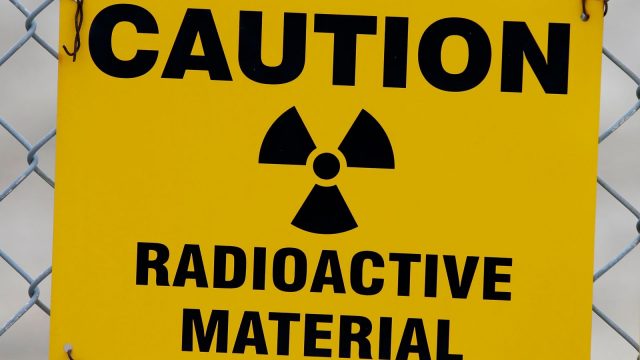Sometimes Environmentalists Are Bad For The Environment

A landfill in North Dakota’s oil patch – in McKenzie County (Watford City), specifically – could be the first in the state to accept radioactive waste under recently changed state rules.
Previously the state’s threshold for disposing such material was ridiculously low. It’s still very, very low but now leaves room for the disposal of waste from oil development at in-state facilities.
This is great news. Previously there was a problem with radioactive materials like filter socks being dumped irresponsibly, and contributing to that problem was the fact that there was no facility in North Dakota which could legally accept the material.
Now there is. And just to be clear about what sort of material we’re talking about, it’s relatively benign stuff. “The facility, in McKenzie County along U.S. Highway 85, proposes to begin accepting waste with radioactivity levels of up to 50 picocuries per gram under new Department of Health rules that took effect this year,” the Bismarck Tribune reports.
According to a manager of the facility, “the level of radioactivity of the waste would be slightly above the radiation that a granite countertop gives off and below the radioactivity level of phosphorus fertilizer.”
So this makes sense, right? We’re talking about mildly radioactive materials being disposed of under new rules that are still some of the tightest in the nation.
Unfortunately, the environmentalists hate this development:
Changing state rules to accept radioactive waste received public criticism, including from the Dakota Resource Council, which said it plans to continue its opposition during the public comment period for the landfills.
“People are really concerned if these landfills are going to go radioactive near them,” said executive director Don Morrison.
A legal challenge to the state rules is still being considered by the Dakota Resource Council and the North Dakota Energy Industry Waste Coalition. The two groups requested an attorney general’s opinion in October on whether the State Health Council violated the open meetings law during the process to adopt the new rules.
“Before we move to another step, we need to see what the AG says,” Morrison said.
It almost seems like these people would rather go back to having having headlines about illegally dumped filter socks and drilling sludge. Because that’s more conducive to their ultimate goal of blocking oil development altogether.
Oil development isn’t going to stop any time soon. That’s reality. So if the development is going to continue, it behooves us to allow for the responsible disposal of the byproducts of that drilling.




